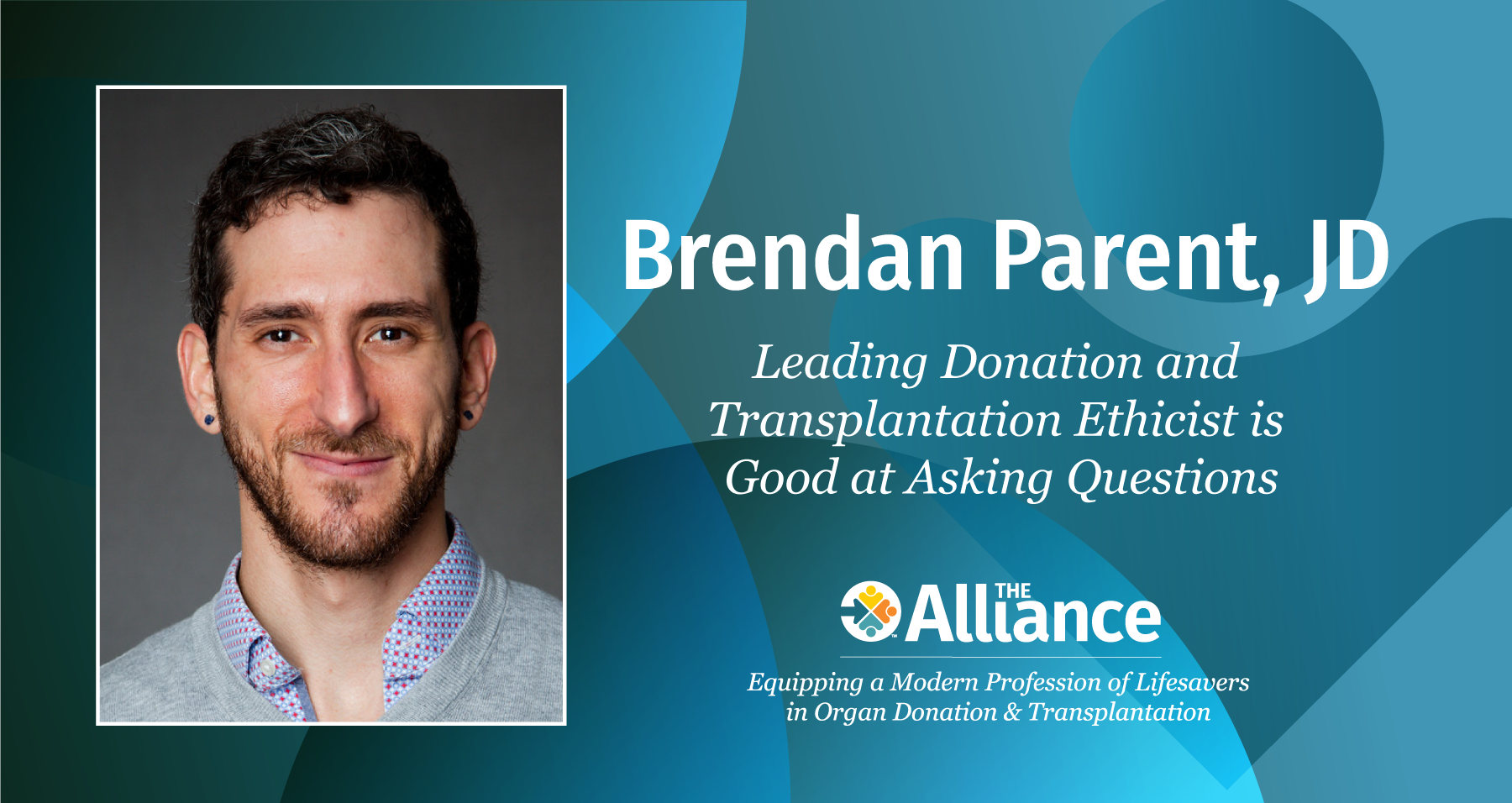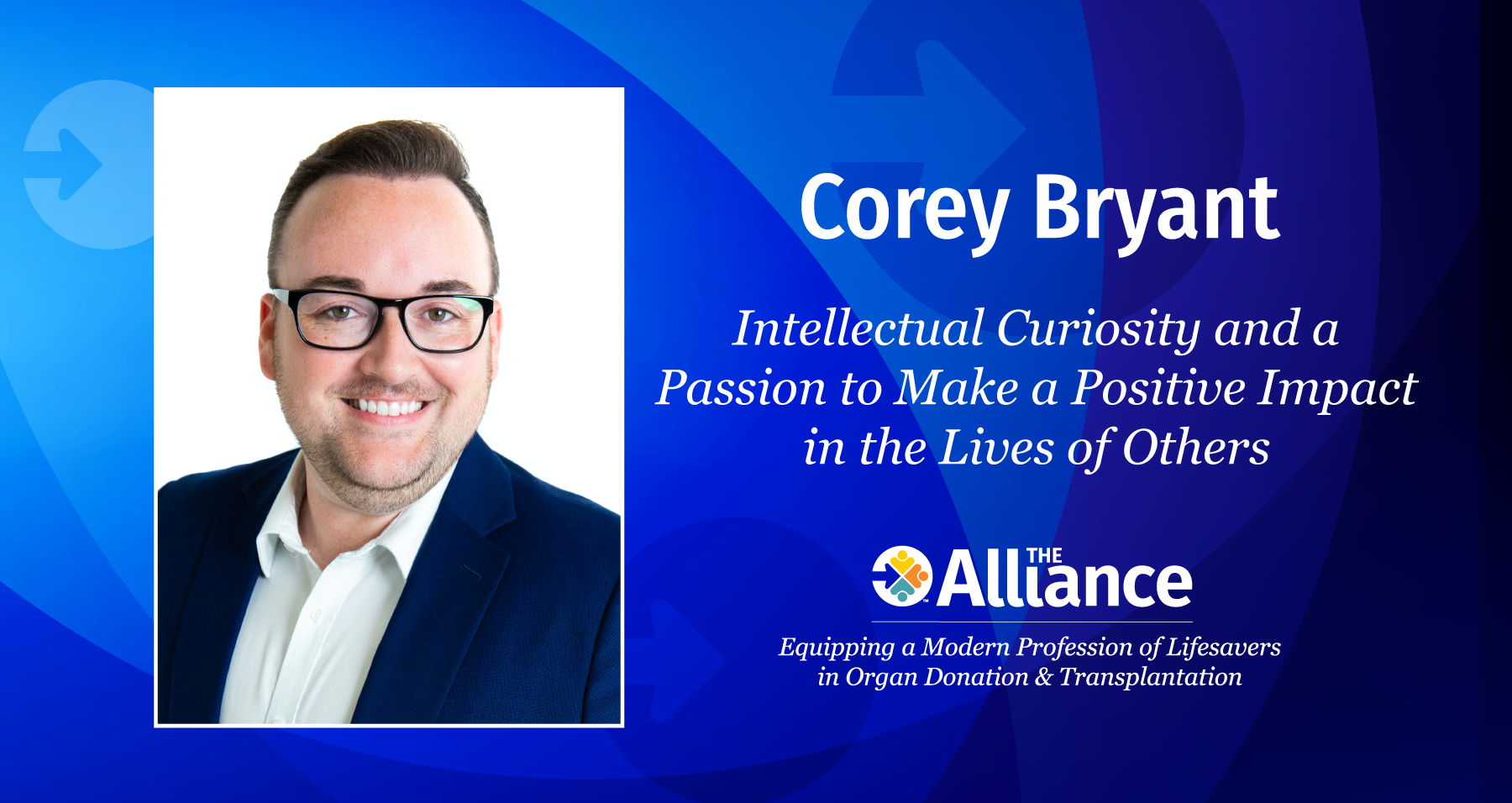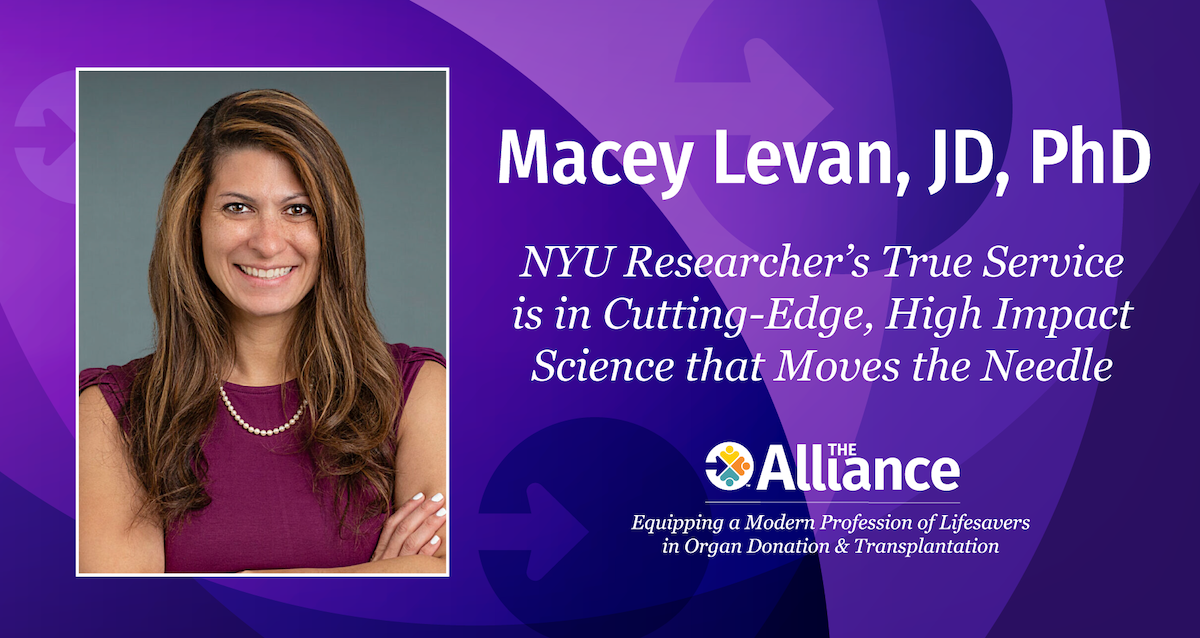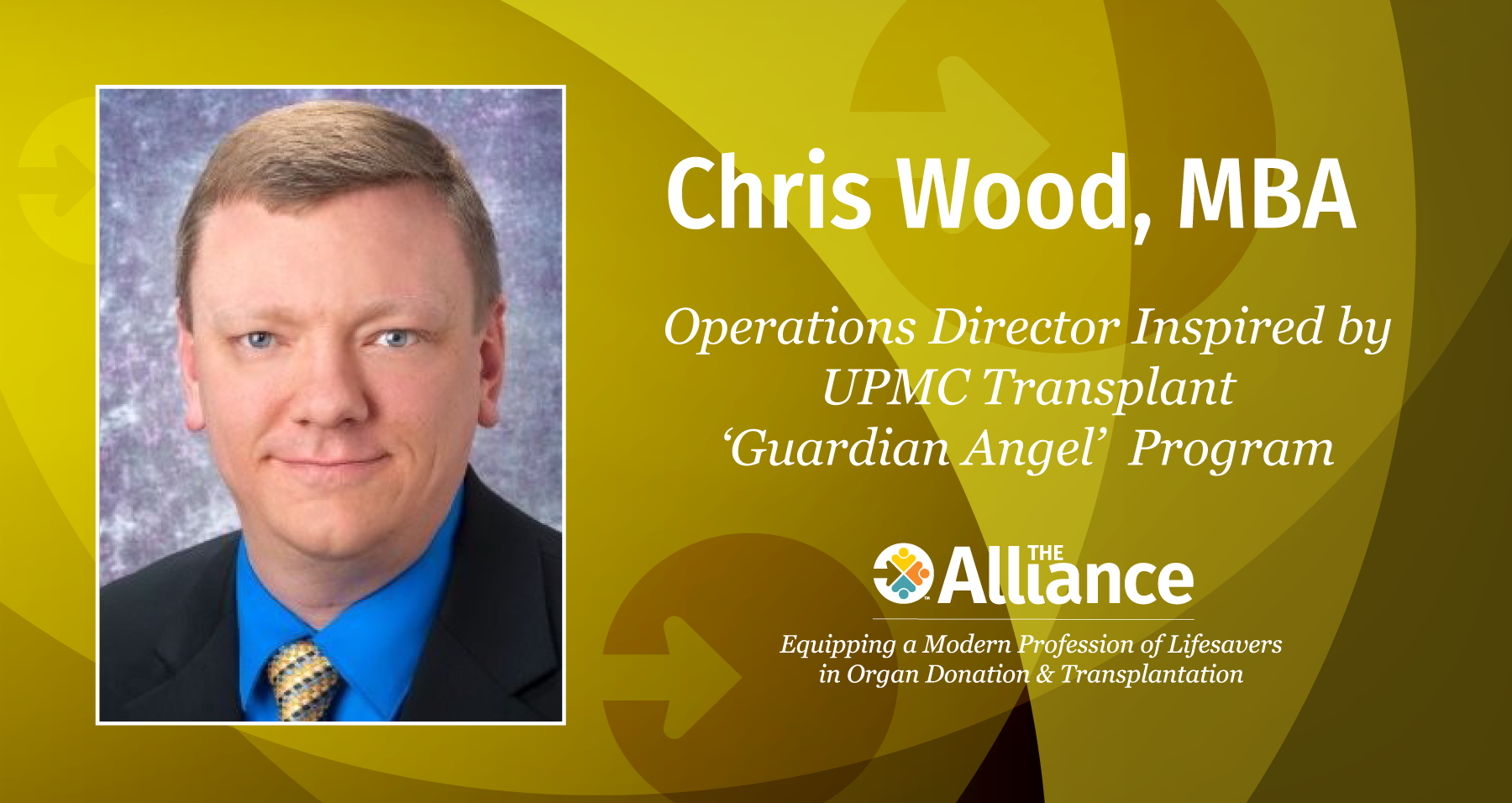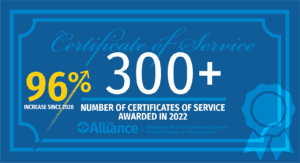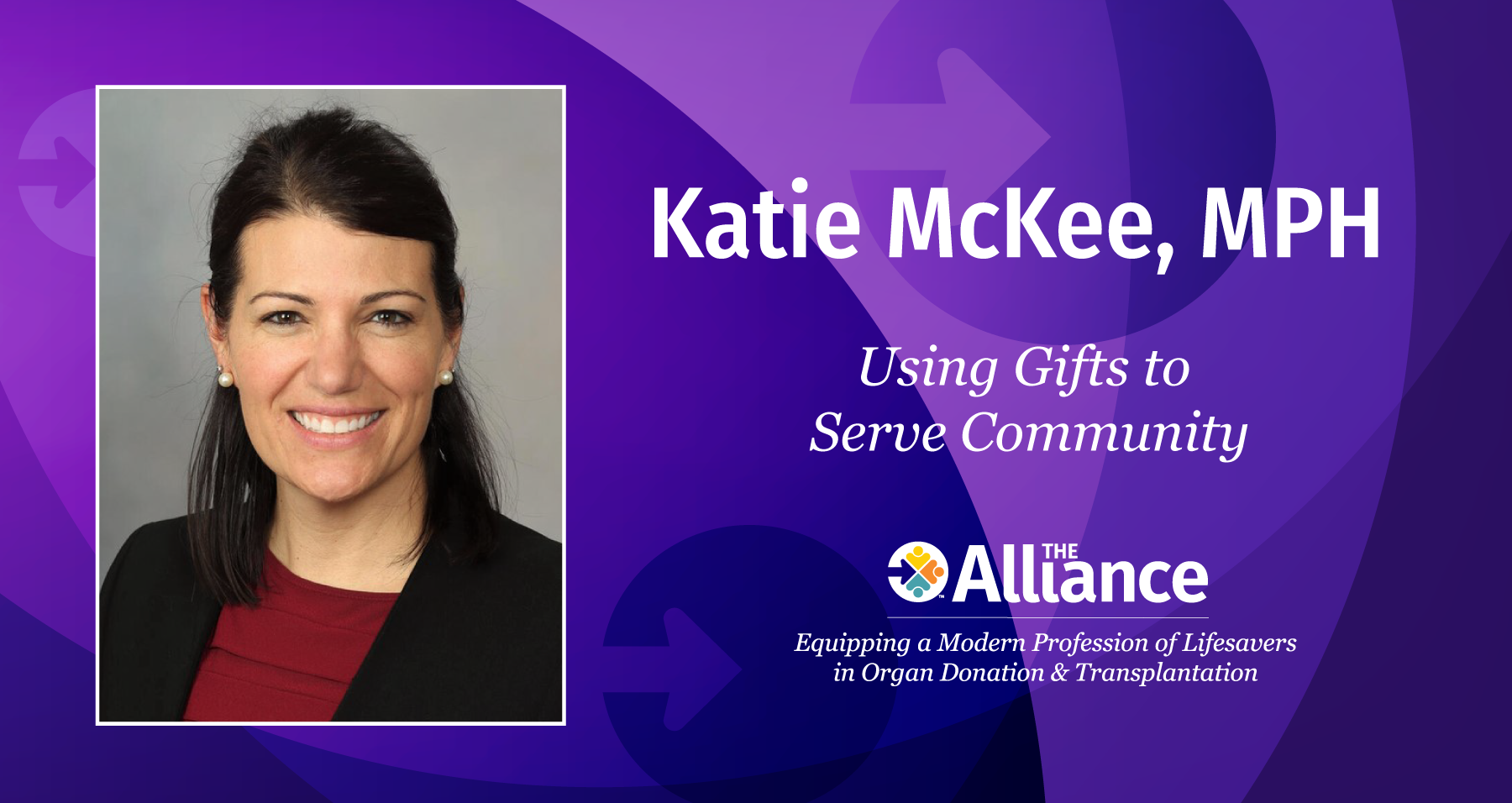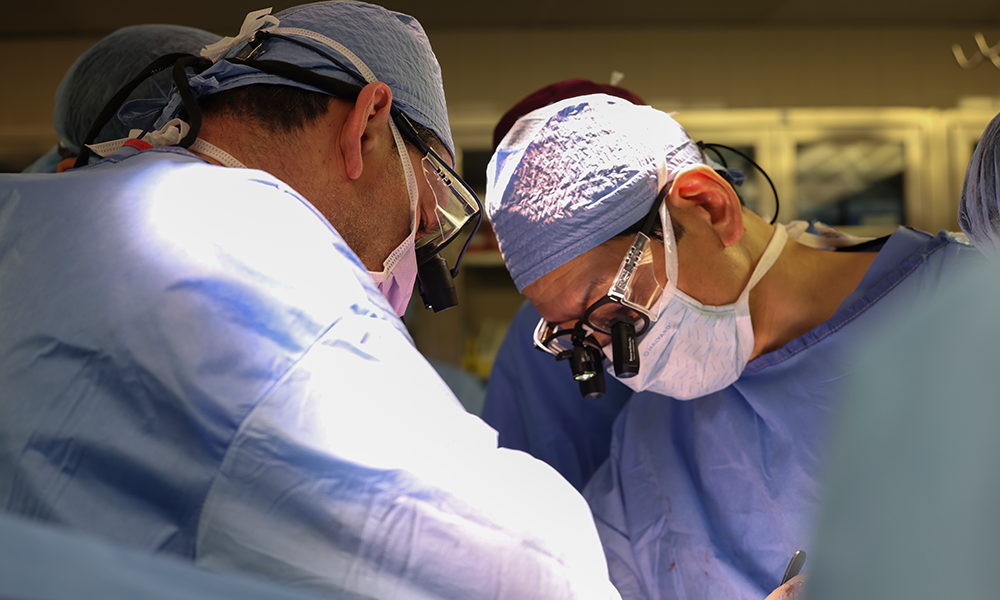Being good at asking questions has made Brendan Parent one of the country’s leading bioethicists in organ donation and transplantation. Parent, director of transplant ethics and policy research and assistant professor of bioethics in the division of medical ethics with a joint appointment in surgery at NYU Grossman School of Medicine, brings that ability to ask the right questions to his work on the Organ Donation and Transplantation Alliance where he serves on the National Donation Leadership Council.
“Bioethics is a field where coming up with the right questions to ask is the most important thing,” says Parent. “And then letting the stakeholders come to their own decisions by providing them the right questions is what I like to do.”
Involvement with Organ Donation and Transplantation
While a law student at Georgetown University in 2011 and working at the National Institutes of Health Department of Bioethics, Parent says he was exposed to the uniqueness of organ transplantation. “In most forms of medicine, it is the clinical sphere of duty to provide optimal care for your patient,” says Parent. “But because the optimal care for transplant candidates is limited, they cannot always get what they need. We have to zoom out to public health triage questions and decide how to allocate something that not everyone can get. And there’s nothing else like that. It demonstrates the clash between the duty to prioritize the well-being and also enable the autonomy of an individual patient while also trying to serve the greatest good.”
Parent was born and raised in California. His mother died of cancer when he was eight years old. “She was a nurse early on in her life and she was really committed to helping people. She made friends with tough personalities, with people who had trouble making friends, and was a remarkable human who found the good in others. Both her clinical course at the end of life and her integrity and kindness subconsciously influenced where I ended up.”
He has three brothers who are 11, 15, and 20 years older. “I grew up with three amazing parental guiding figures in addition to my actual parents. And they were very, very critical to my development. One of them told me to work as hard as you can, and if you do that early on, pieces will fall into place, and you’ll be able to do what you want. And another one said, ‘Follow your heart. Do what you love.’ I created something of a mosaic and tried to follow both their advice.”
Path to Bioethics
Parent earned a bachelor’s degree in bioethics from UC Santa Cruz, a major that he created. “I was double majoring in molecular and cellular developmental biology and philosophy, and then I discovered a class called ‘Bioethics in the 21st century.’ It was co-led by the head of philosophy and the head of biochemistry. They brought in guest speakers from all over the world to talk about issues around genetics technologies, around end-of-life care issues, around questions of international warfare and terrorism. It was fascinating to see this clash of beliefs and values among undergrads trying to grapple with what is the right thing to do.”
After taking that class, Parent had a dream that he designed his own major in bioethics. He set about making that dream a reality, obtaining faculty sponsors and approval from the UC Board of Regents.
After college, Parent moved to San Francisco and became a certified motorcycle mechanic and worked as a bartender. A call from a friend landed him a job in the television industry but he found that wasn’t a good fit. He considered going to medical school, but one of his friends reminded him of his experience in an undergraduate human anatomy class. “He said, ‘Brendan, you can’t go into medicine because you have crippling empathy’. And I think that was the right way to describe it. I would not be able to make rational decisions for people whose lives are immediately at stake in front of me. So medicine was ruled out.”
A cousin suggested he consider going to law school and he applied only to law schools with bioethics programs and graduated from Georgetown Law in 2012. After graduation, he followed his soon-to-be wife to New York City, where he reached out to renowned medical ethicist Art Caplan whom he had heard was moving to New York University to build a new bioethics program. “I got his email through this connection that I had from my bioethics class. I wrote to him, and I said, ‘Hi, I want to be you one day. How do I do that?’ And this giant in the field, he responded and said, ‘Not hiring yet, but come see me.’ He showed me 10 things he was working on and asked me what interested me. I picked two and one was an issue around organ donation and face transplant. I started doing some writing for him.” Parent has been working with Caplan ever since.
Not a ‘Thought Experiment’
In 2012, Parent received a one-year fellowship at the New York Task Force on Life and the Law, where a project that he thought was an interesting ‘thought experiment’ would be put into play during COVID. “The task force is a group of theologians, social workers, doctors, scientists, nurses, and attorneys who advise the [NY State] Department of Health and the legislature on issues at the intersection of technology, medicine, and law. When I first started, I worked on a project on how to allocate ventilators in the event of a pandemic. I helped write up the guidelines, which then became one of the few cornerstones of how to manage triage care during COVID.”
Parent then received his first postdoc in the Division of Medical Ethics at NYU where he worked on Vascularized Composite Allotransplantation (VCA) — legal questions around how to inform donors about new kinds of donations, (such as face, hand, uterus, and penis) and how to think about eligibility for them. He served as a faculty member in NYU’s school of professional studies and NYU’s Langone Medical Center before becoming the Director of Transplant Ethics and Policy Research in NYU’s Grossman School of Medicine in 2020.
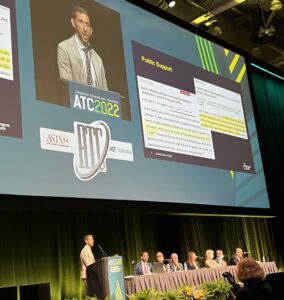
This past year, he contributed to three Alliance learning opportunities that are available as on-demand webinars in The Alliance’s Advancement Series:
- “Improving Access to Transplant Care for Communities of Color”
- “Understanding the UDDA: A Review of the Legal Standard of Death Determination”
- “A Comparative Philosophical Perspective on The Ethics of Normothermic Regional Perfusion”
Parent is serving on The Alliance’s planning committee for the 2023 National Critical Issues Forum on Normothermic Regional Perfusion (NRP), presented in partnership with Gift of Life Institute. More than two hundred people have registered to attend the one-day summit in Philadelphia in late March on the evolving state of NRP. This collaborative summit will include different perspectives on NRP and will be a fast-paced exploration of legal, ethical, financial, and clinical aspects, as well as the impacts to donor management and hospital relationships. The Alliance is not an advocacy organization and maintains an objective and unbiased perspective.
Parent and Caplan helped write one of the first articles addressing ethical and logistical considerations for NRP in the United States context, which has created an important debate. Parent says his original position has a lot of caveats. “I think there is a way to do this ethically, but I also think there are some important considerations that we need to figure out. There’s more research that needs to be done from the donor family perspective. What are they being told? How do they feel about it from the public’s perspective?”
It’s important to me that these debates remain civil and respectful and that we don’t become politically attached to ideas, but that we recognize that we have the same goal to advance organ donation in a way that that respects and prioritizes individual patient care and well-being.”
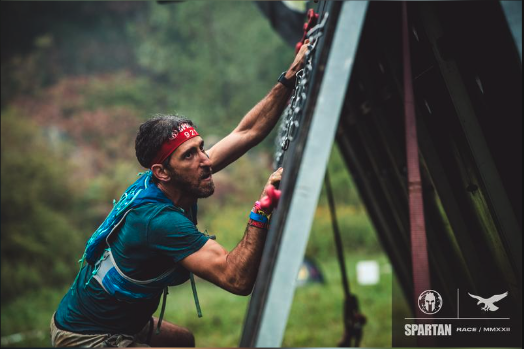 Parent lives in NYC with his wife, Jane, a litigator at The Innocence Project, and their young son, Kai. On a typical weekend, both parents try to get in a workout, and then it’s off to meet up with Kai’s friends and their parents — at a playground, for a walk in one of the many northern Bronx parks near where they live, to a museum, or to the Bronx Zoo. Three times per year, Brendan will run off to compete in a long-distance obstacle course race. Occasionally, he’ll disappear into his office to repair or build a mechanical watch. For him, these are mostly meditative exercises to work on bioethics problems.
Parent lives in NYC with his wife, Jane, a litigator at The Innocence Project, and their young son, Kai. On a typical weekend, both parents try to get in a workout, and then it’s off to meet up with Kai’s friends and their parents — at a playground, for a walk in one of the many northern Bronx parks near where they live, to a museum, or to the Bronx Zoo. Three times per year, Brendan will run off to compete in a long-distance obstacle course race. Occasionally, he’ll disappear into his office to repair or build a mechanical watch. For him, these are mostly meditative exercises to work on bioethics problems.
“I was very fortunate to find bioethics much earlier than most people find their career or passion and their goals,” says Parent. “Every day I feel very fortunate to go to work to do something that I love and hope that I can make a difference in people’s lives. What I care most about is improving the position of those who are vulnerable and disadvantaged. I think that’s the most important space for bioethicists today.”




